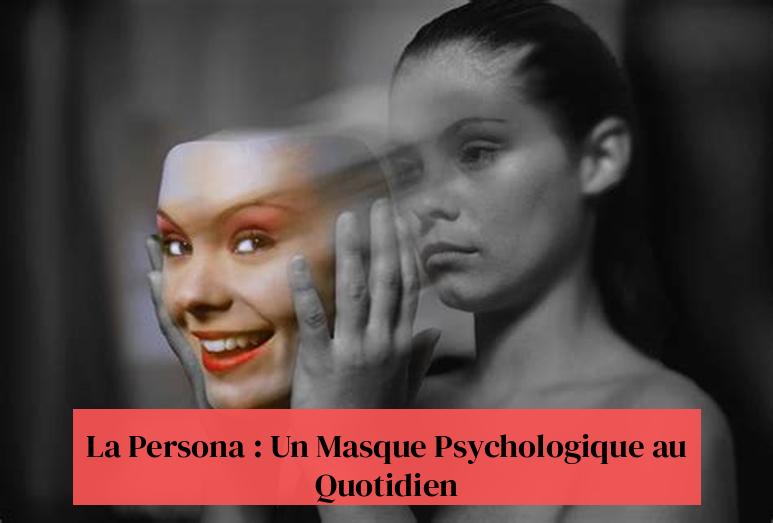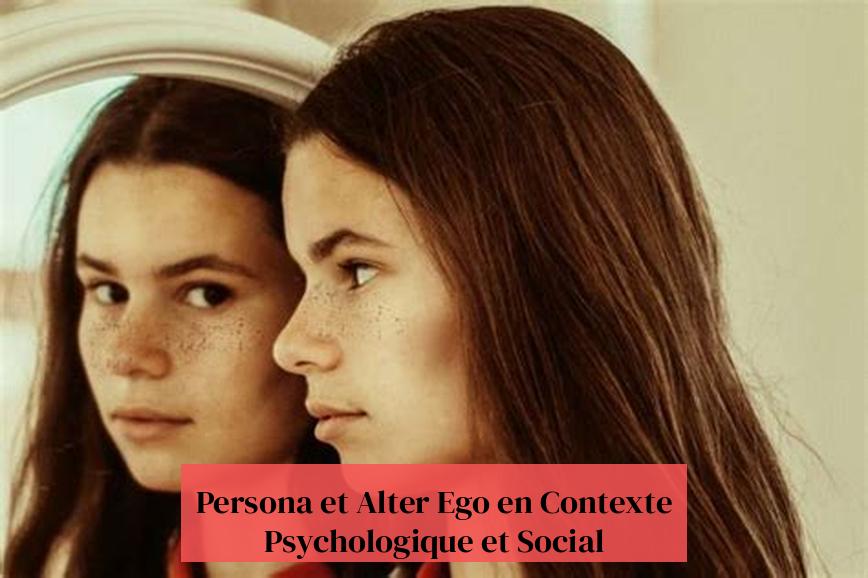What is the difference between a persona and an alter ego? Discover the fascinating nuances between these two psychological and social concepts. From the persona, this psychological mask that we wear every day, to the alter ego, this double of ourselves, let's dive together into the captivating universe of these two notions and untangle the threads of their complexity. Whether you've already used a persona to protect yourself or found your alter ego, this post will shed light on these intriguing aspects of our identity.
In summary :
- An alter ego is a distinct manifestation of the ego, while a persona is more complex and goes beyond the ego.
- An alter ego is considered an "other self" distinct from a person's normal personality, while a persona is a facet of the ego, the mask one wears in a given situation.
- Alternate identities have completely different personalities, memories, needs, etc., while an alter ego is another manifestation of oneself.
- If you are considering constructing an alter ego, you can take inspiration from someone concrete, such as a family member or a close person, while a persona is a more complex construction of the ego.
- In psychology, the notion of alter ego is used when referring to an individual's second personality, while a persona is a facet of the ego used in specific contexts.
Table of contents
The Persona: A Daily Psychological Mask

The notion of person has its roots in ancient theater where actors wore masks to portray different characters. Transposed into modern psychology, the persona represents the social mask that we adopt. It’s a facade we build to fit into society or to protect our true nature. For many, this involves adopting behaviors that correspond to the expectations of those around us professionally or personally, often to avoid conflicts or to facilitate social interactions.
The persona can also be seen as a defense mechanism. For example, a person may adopt a persona of intellectualism, like the example given of Mr Macron, to protect themselves against criticism or to give themselves credibility in certain circles. However, the persona is not a lie per se, but rather a filtered version of our identity, chosen to navigate the complexities of human interactions.
It is important to note that everyone uses personas, and often several different ones depending on the context. This is not necessarily harmful as long as the individual remains aware of this facade and does not get so lost in it that they no longer recognize their true nature.
The Alter Ego: When the “Me” Splits
THEalter ego, often interpreted as an “other self”, can be seen as a facet of our personality that is either hidden or amplified. Unlike the persona, which is often a smooth surface created for social interaction, the alter ego can reveal deeper, sometimes even unknown aspects of the individual themselves. It is an exploration of what could be, often freer and less constrained by social norms.
Historically, alter ego has been used to describe extreme cases such as those observed by Anton Mesmer, where individuals exhibited radically different behaviors under hypnosis. These observations paved the way for more in-depth studies of different states of human consciousness and multiple personalities.
In a more modern and everyday context, having an alter ego can allow a person to express talents or passions that they do not feel capable of manifesting in their “normal” life. For example, a conservative accountant could be a flamboyant musician in his alter ego. This can serve as an emotional safety valve, allowing individuals to experience otherwise inaccessible experiences.
Persona and Alter Ego in Psychological and Social Context

In psychology, the distinction between persona and alter ego is crucial to understanding how we construct and manage our identity. There person is often what we show to the world, a polite and socially acceptable image. The alter ego, on the other hand, can act as a refuge for unexpressed traits and desires, playing a cathartic role in self-expression.
In literature and the arts, these concepts are frequently explored to dramatize the internal conflicts of characters or to question the notion of identity itself. Writers often use alter egos to express opinions or explore storylines that they might not otherwise be able to approach in their real lives.
Finally, it is essential to recognize that the line between persona and alter ego can sometimes become blurry. A persona can evolve and encompass elements that were initially relegated to the alter ego, especially if the individual becomes more comfortable with these aspects of themselves. Conversely, an alter ego may begin to influence the persona, especially if the behaviors it releases are rewarding or if they are received positively.
Understanding these concepts not only helps us interact better with others, but also helps us understand ourselves better. They play a crucial role in our personal development and our ability to navigate the complex world of human relationships.
What is the difference between a persona and an alter ego?
What is the meaning of the concept of persona in modern psychology?
Reply : The notion of persona in modern psychology represents the social mask we adopt, a facade constructed to integrate us into society or to protect our true nature.
What is the difference between a persona and an alter ego?
How does the alter ego differ from the persona?
Reply : Unlike the persona, which is often a smooth surface created for social interaction, the alter ego can reveal deeper, sometimes even unknown aspects of the individual themselves.
What is the difference between a persona and an alter ego?
What is the significance of the alter ego in literary analysis?
Reply : In literary analysis, the alter ego describes characters who are psychologically similar, or a fictional character whose behavior, speech, and thoughts intentionally represent those of the author.
What is the difference between a persona and an alter ego?
What is the origin of the recognition of the existence of an alter ego?
Reply : The existence of an "other Self" was first recognized in the 1730s, when hypnosis was used to separate the alter ego, showing the existence of another behavior differentiating the personality of the individual upon waking and that of the individual under hypnosis.



